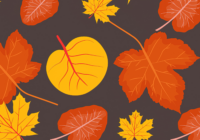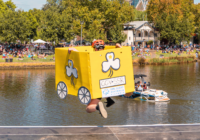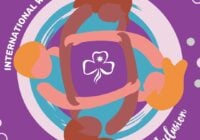Download GGV’s Acknowledgement of Country
Resources for National Reconciliation Week:
- Access information, posters and resources at the National Reconciliation Week website
- Download Reconciliation Week activities from Twinkl
Resources for NAIDOC Week:
- Explore ways you can celebrate NAIDOC Week at the NAIDOC website
Resources for Girl Guides and Guide Units:
- Learn about what an Acknowledgement of Country is, and develop one for your Guide Unit.
- Educate yourselves on how to respectfully fly the Aboriginal and Torres Strait Islander flags.
- Visit the Deadly Story website, and learn about Aboriginal Culture, Country & Community.
- Learn about Aboriginal Inventions. How many of these do you use? Could any of them be useful the next time you go camping?
- Play some Indigenous Traditional Games! You might hold a tournament and compete with the other Patrols in your Guide Unit, or you could just play a few for fun.
- Learn about the native Victorian animals with this multilingual colouring book.
- Learn about Aboriginal Rock Art. Have you ever seen an rock art in Victoria?
- Learn more about Indigenous plants, and what they are used for. Does your Girl Guide Hall have an Australian Native garden? Use this resource to help identify your plants!
- Read a book about Aboriginal children and/or culture. Here is a list of 10 really good ones!
Resources for Guide Leaders:
- Share our Pride, an online resource suitable for older Girl Guides and adults interested in raising their awareness about the lives of First Nations people. You’ll get a taste of traditional cultures and learn about shared history.
- Koori Curriculum, which is designed to give educators guidance and support to include Aboriginal perspectives in the curriculum.
- The Maggolee website has information about each of the 79 Victorian local government areas; details on policy and programs; protocols and cultural awareness; traditional owner groups; and local Aboriginal organisations, Aboriginal languages, key local contacts, news, and events.
- Australian Institute of Aboriginal and Torres Strait Islander Studies (AIATSIS), which aims to create and deliver professional development for teachers and educators so that teachers and
educators can confidently: educate their students about Aboriginal and Torres Strait Islander cultures, and teach Aboriginal and Torres Strait Islander students with confidence. - Read the Reconciliation Action Plan good practice guide on demonstrating inclusive and respectful language.
- Connecting with the Aboriginal History of the Yarra, a resource developed by Yarra City Council in consultation with the local Wurundjeri people.
- Wurundjeri Tribe Council, a website with more information about the Traditional Owners of Greater Melbourne.
- Information about the Uluru Statement from the Heart. T
- More resources to help commemorate the Uluru Statement from the Heart.

Earn the Reconciliation Badge:
This badge is part of Girl Guides Victoria’s commitment to Aboriginal and Torres Strait Islander recognition and reconciliation. In demonstration of this commitment, the State Commissioner has approved the Reconciliation Badge, our first Indigenous badge, as a ‘sash badge.’ This badge can be worn on the back of your sash as a special event badge. This is a significant and rare decision, and provides an important visible connection between the Girl Guides Victoria and Indigenous communities.
The Reconciliation Badge provides an opportunity for Girl Guides, individually or with their Guide Unit, to display their commitment through their actions by participating in a cultural activity or event. Girl Guides must participate in an appropriate cultural activity or event to earn and wear this badge.








